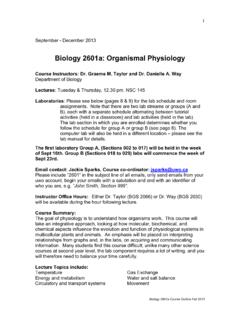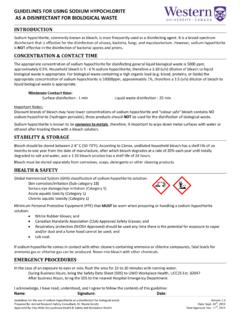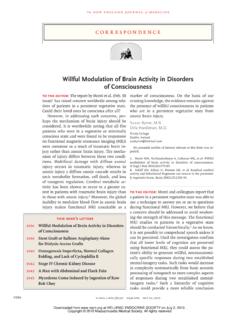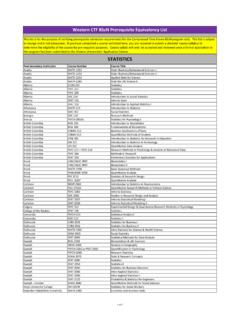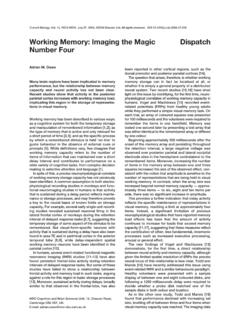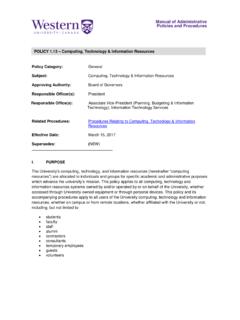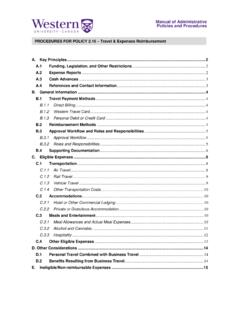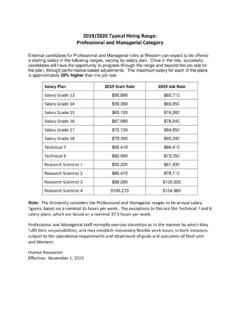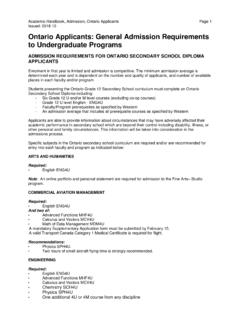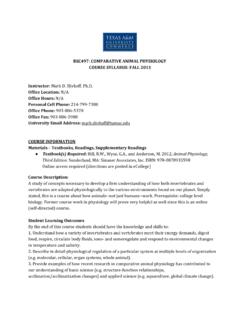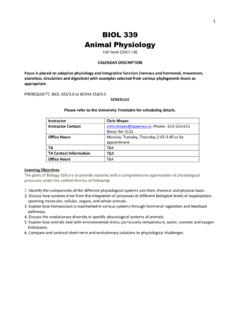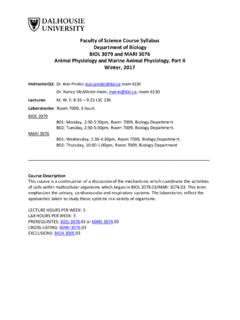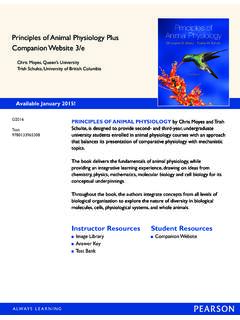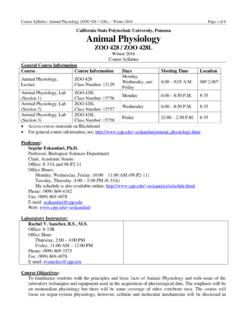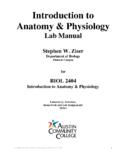Transcription of Biology 2601a: Organismal Physiology - uwo.ca
1 1 Biology 2601a Course Outline Fall 2014 September - December 2014 Biology 2601a: Organismal Physiology Course Instructors: Dr. Graeme M. Taylor and Dr. Danielle A. Way Department of Biology Lectures: Tuesday & Thursday, pm. NSC 145 Laboratories: Please see below (pages 8 & 9) for the lab schedule and room assignments. Note that there are two lab streams or groups (A and B), each with a separate schedule alternating between tutorial activities (held in a classroom) and lab activities (held in the lab). The lab section in which you are enrolled determines whether you follow the schedule for group A or group B (see page 8).
2 The computer lab will also be held in a different location please see the lab manual for details. The first laboratory Group A, (Sections 002 to 017) will be held in the week of Sept 8th. Group B (Sections 018 to 029) labs will commence the week of Sept 15th. Email contact: Jackie Sparks, Course co-ordinator: Please include 2601 in the subject line of all emails, only send emails from your uwo account, begin your emails with a salutation and end with an identifier of who you are, John Smith, Section 999 . Instructor Office Hours: Either Dr.
3 Taylor (BGS 2066) or Dr. Way (BGS 2030) will be available during the hour following lecture. Course Summary: The goal of Physiology is to understand how organisms work. This course will take an integrative approach, looking at how molecular, biochemical, and chemical aspects influence the evolution and function of physiological systems in multicellular plants and animals. An emphasis will be placed on interpreting relationships from graphs and, in the labs, on acquiring and communicating information. Many students find this course difficult; unlike many other science courses at second year level, the lab component requires a lot of writing, and you will therefore need to balance your time carefully.
4 Lecture Topics include: Temperature Energy and metabolism Circulatory and transport systems Gas Exchange Water and salt balance Movement 2 Biology 2601a Course Outline Fall 2014 Evaluation: To pass this course, you will be required to get at least 23/45 in the lab component, and at least 28/55 in the lecture component. Labs: animal Ethics quiz (online) 1 First lab report 7 Second lab report 12 Third lab report 25 TOTAL for LABS: 45% Lecture: Mid-term: 20 Final: 35 TOTAL for LECTURE: 55% Your final grade for the course will be calculated as the sum of your marks for each of the components.
5 This mark will then be rounded to the nearest integer. No marks will be awarded for arbitrary reasons, and there will be no after-the-fact changes ( of 69 to 70%). animal Ethics Quiz: This will be a brief OWL multiple choice quiz covering the material in the animal Ethics lecture (which is online) and a OWL tutorial. You will have 3 attempts at the quiz. It is designed to give you further opportunity to think about the ethics and mechanics of using animal models in research. The quiz will be available from Thursday September 4th until pm on Friday September 26th 2014.
6 No extensions will be granted. Note that material from the animal Ethics lecture and tutorial could also appear on the midterm and final exams. Readings: Currently, no publisher produces a textbook that includes both plant and animal Physiology at a level that is appropriate for this course. As a result, we will be utilizing material from two different texts: Hill, , Wyse, & Anderson, M. 2012. animal Physiology , Third Edition. Sinauer, Sunderland, MA. Taiz, L. & Zeiger, E. 2010. Plant Physiology , Fifth Edition. Sinauer, Sunderland, MA. To keep (your) costs down the two books are available as a bundled looseleaf version of both textbooks at the BookStore (this costs less than one of the hardcover texts).
7 The hardcover texts are also available in the BookStore. Multiple copies of both textbooks are on 2 h reserve at the Taylor library, as are several other animal and plant Physiology textbooks. Most current animal or plant Physiology texts will give adequate coverage of the material in the course. If you choose to use earlier editions of the textbooks, or some other textbook, you will not receive any assistance in identifying suitable readings. Lecture will generally include references to additional reading that expands upon the material covered in the lecture.
8 The aim of the readings is to give you 3 Biology 2601a Course Outline Fall 2014 broader and deeper information, and also give you a different form of explanation. The material presented in the lectures and laboratories defines the examinable material, so you are advised to make notes first from the lectures, and then use the readings to clarify and increase your knowledge and understanding. OWL: Much material, including handouts (usually available 24 h before the lecture), additional reading, pictures and some assignments will appear on the OWL site.
9 In addition, important announcements will be made on OWL, and you are responsible for obtaining this information. The discussion boards are also there for you to discuss concepts, to help each other out, and to ask content-related questions. We will keep tabs on the discussions, and weigh in where necessary, but most questions will be answered by other members of the class. There will also be an opportunity to nominate topics for a revision lecture using the discussion boards. In addition, your marks will be regularly updated under Gradebook in OWL.
10 Please keep an eye on these and don t be afraid to query any apparent inconsistencies between what you thought you got and what is on OWL (mistakes can creep in). When assessing these marks keep in mind, you will not have marks for things that have not yet been marked, and if (for example) you miss the mid-term and it will be re-weighted according to the final, you will not receive a mid-term grade until you have written the final exam. Lab Reports Marks: You will write three lab reports in this course. The aim is to allow you to learn from your mistakes and build on what you learn in writing the earlier lab reports.
